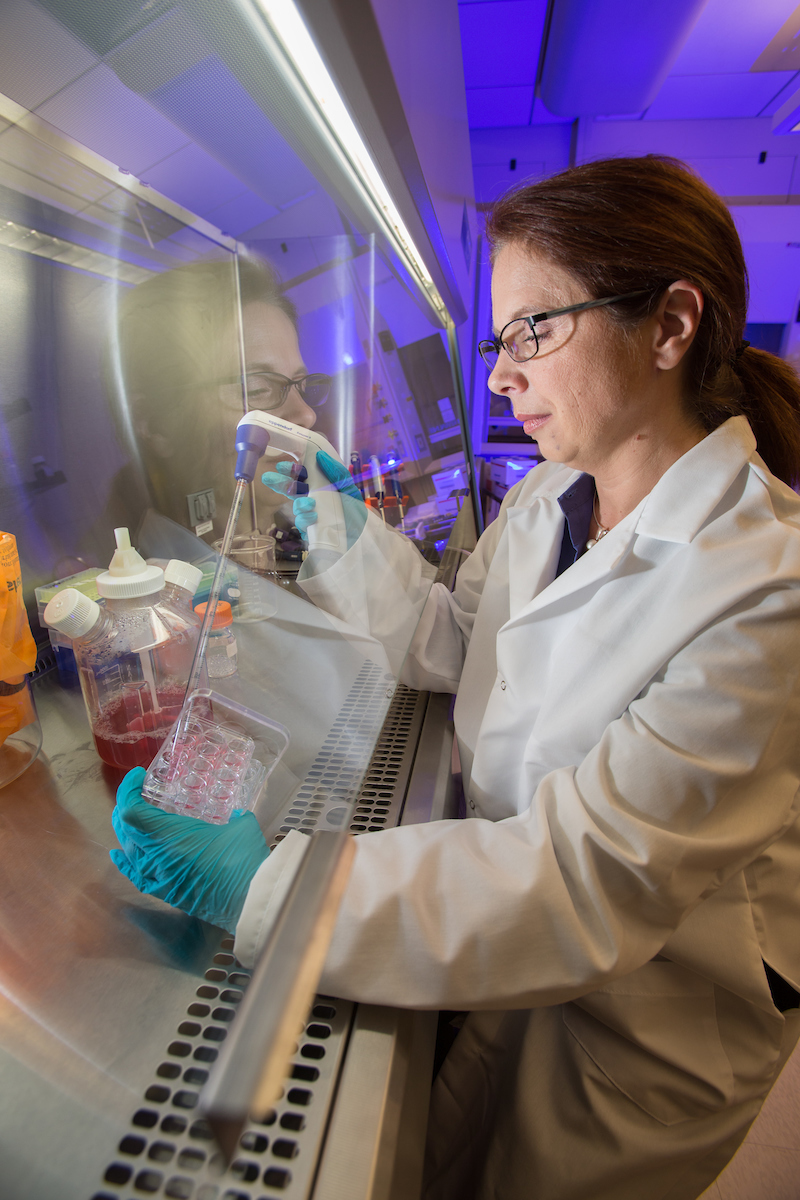Catherine O’Connell’s interest in bacterial pathogenesis stems from early training in Staphylococcus aureus genetics, evolving through her study of the intracellular pathogen Shigella flexneri, to her current research interest, the obligate intracellular pathogen Chlamydia trachomatis.
Dr. O’Connell’s principal research goals are directed towards understanding the virulence mechanisms used by chlamydial species to cause disease. She has a strong interest in the complex host-pathogen interactions involved in chlamydial infection, particularly those influenced by the presence of the conserved resident plasmid. In addition, she is also interested in chlamydial-cell interactions that influence the flow of important metabolic intermediates to inclusion-bound microorganisms or that result in host-directed modification of chlamydial proteins that ultimately may alter immune-recognition and antigen presentation.
Dr. O’Connell has developed a recent interest in investigating the impact of chlamydial infection on human inflammatory responses using transcriptional profiling and in studying the genomics of chlamydial strains associated with pelvic inflammatory disease, the most damaging manifestation of genital tract infection caused by C. trachomatis. The goal of this research is to identify biomarkers, both host and bacterial, that can predict risk for severe reproductive tract morbidities such as infertility and ectopic pregnancy.
